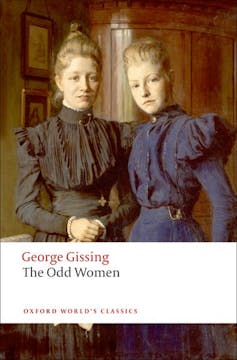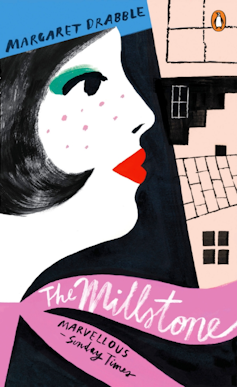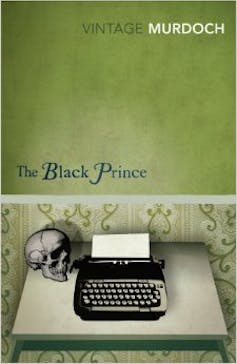Three alternative romantic fiction authors that will heat up any beach trip
There’s no better way to escape the stresses and strains of work and – for many at the current juncture – the acute anxiety of geopolitics, than to put your reading into “romance” gear. Britain versus the world is a gloomy real-world problem; for summer relief, try instead the question of the heart versus the mind. That is the core problem of much of my very favourite, intellectually inspiring fiction.
Chick lit is out, I’m afraid: an avowed literary snob, I like my dilemmas of desire served up in rich, fulsome English, with slowly unravelled plots and textured characters, not two-dimensional patriarchal fairy tales dished up in elementary school grammatical structures (hides under the table).
Current favourites are George Gissing’s The Odd Women and an assortment of Margaret Drabble, the queen of 1970s British letters, and pretty much anything by Iris Murdoch.
George Gissing
For the tensions and irrationalities of romantic feeling, The Odd Women (1893) is superlative. What it does so brilliantly is take one of the burning sets of issues of the day – women’s rights, particularly in relation to marriage – and pits its intellectual and ideological propositions against the anarchic, intrusive power of dawning love.

Let me lure you further. The book’s main characters are two vehement feminists, the excellently named Rhoda Nunn, and her partner in crime, the angelic yet forceful Mary Barfoot. Together – they live together, too – they seek to save single, or “odd” women from the desolate dregs of the old maids’ job market by training them up as clerks on typewriters.
Suddenly, Rhoda finds herself in an odd position. An avowed spinster, determined to practice what she preaches, she is also of “strong and shapely” figure and “handsome” feature. So when Mary’s sexy cousin, Everard, begins visiting the house on return from his relaxed bachelor travels around the Orient, he takes an interest in her. Rhoda’s position is the following: “I am seriously convinced that before the female sex can be raised from its low level there will have to be a widespread revolt against sexual instinct.”
Catnip for Everard who – as stubborn as Rhoda – begins a woo that is hard to resist, seeming to fall not only for Rhoda but for women’s equality, too. The delicious yet unexpected conclusion to this story is head and shoulders above your usual romance fare, the work of a master stylist who never abandons humour, even as he makes you cry.
Margaret Drabble
Drabble, 80 years later, gives a softer but equally crystalline gender-aware portrait of relationships. In The Needle’s Eye (1972), reserved Simon Camish goes to a dreadful supper party and is offended by the guests’ vulgarity. But then rough-skinned, makeup-free, and self-dispossessed heiress Rose walks in, and with her genteel delicacy of manner and genuine modesty, immediately entrances Simon, himself married to a minor heiress he can’t stand.

Simon gets involved in Rose’s divorce saga; desperate to play the legal knight in shining armour (he is a lawyer) to Rose’s sensitive yet deeply stubborn damsel in distress. Both reveal astonishing integrity of character as Rose is buffeted with extreme violence for rejecting social expectations by insisting on being poor.
But if you’re feeling anxious, I recommend The Millstone, Drabble’s 1965 peach about an adorable unmarried scholar of Elizabethan verse who gets pregnant the first time she has sex, and never tells the father, who she worships from afar. It’s both soothing and sad. The father is a BBC radio announcer, and she merely switches on the radio when she wants to feel reassured by him, which is a lovely bit of romance. It is a very slim book, but it’s perfectly formed: a story of an intelligent, liberated woman leaving the man out while falling in love with the baby everyone told her not to have on any account.
Happy ending? Unclear. Like real life, in which convention, rationality and deep emotional drives do not always mesh? Definitely, but sweeter.
Iris Murdoch

Iris isn’t for everyone. But I have loved her ever since a friend handed me The Black Prince (1973) on a rainy holiday in Sicily. Cowering on a deserted beach, I found myself intrigued and amused as ageing author Bradley becomes increasingly caught in a cat’s cradle of deadly desire, starring a striking assortment of women with men’s names such as Christian and Julian.
Booker Prize-winning The Sea, the Sea (1978) also completely bewitched me: once more, a story of explosive obsession ripping through the reserve of an otherwise orderly, if arrogant, English life of letters.
And currently I’m savouring The Sandcastle (1957), about a middle-aged Surrey schoolmaster, Bill Mor, who falls ill-advisedly in love with the deliciously named Rain Carter, a nymph-like portrait painter hired to capture the retired headmaster. The parched school grounds, the doe-like yet strong Rain, the prudish ferocity of Mrs Mor and their children’s spectral games cast a magic spell, just as Murdoch – I assume – intended.

